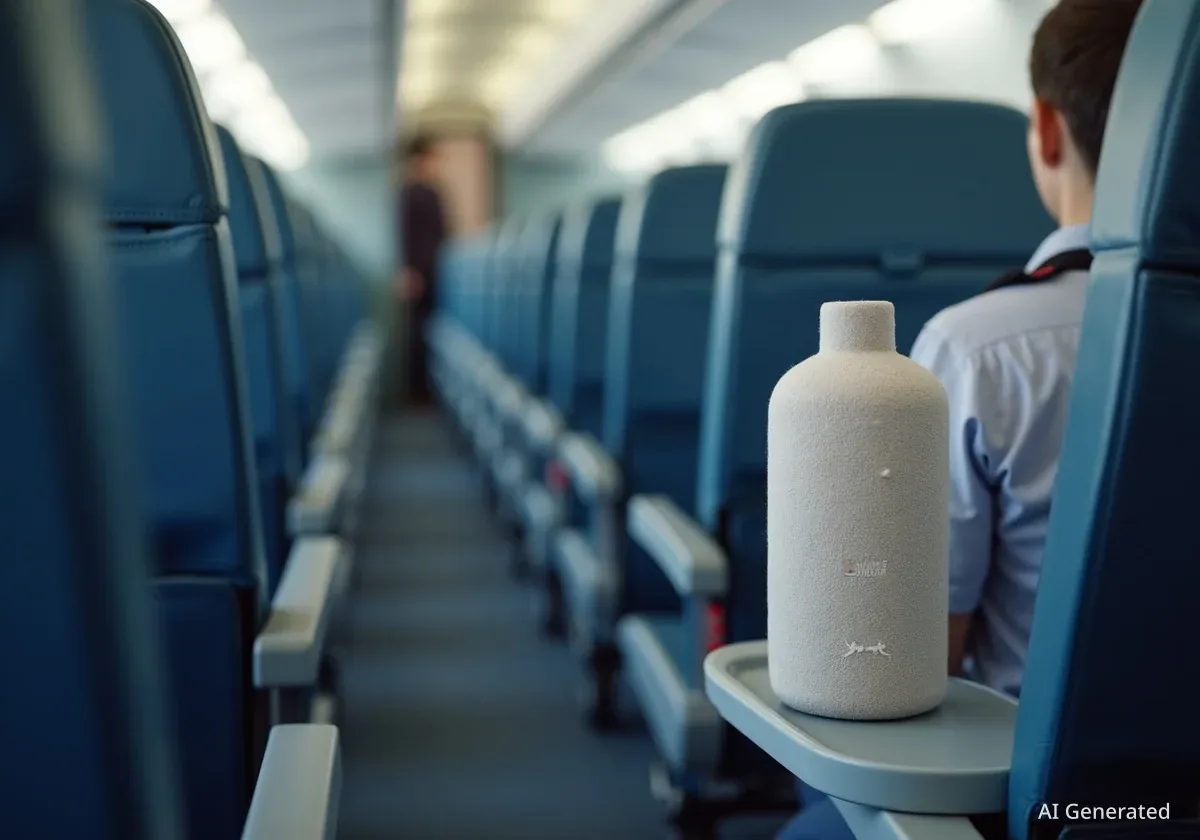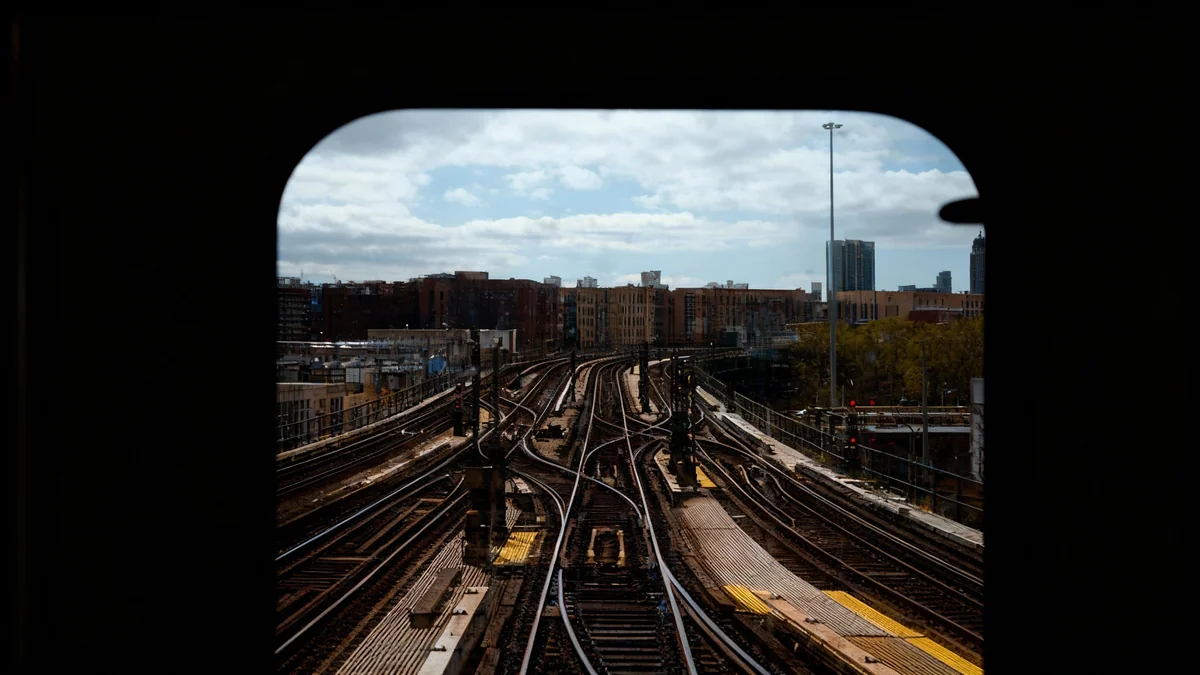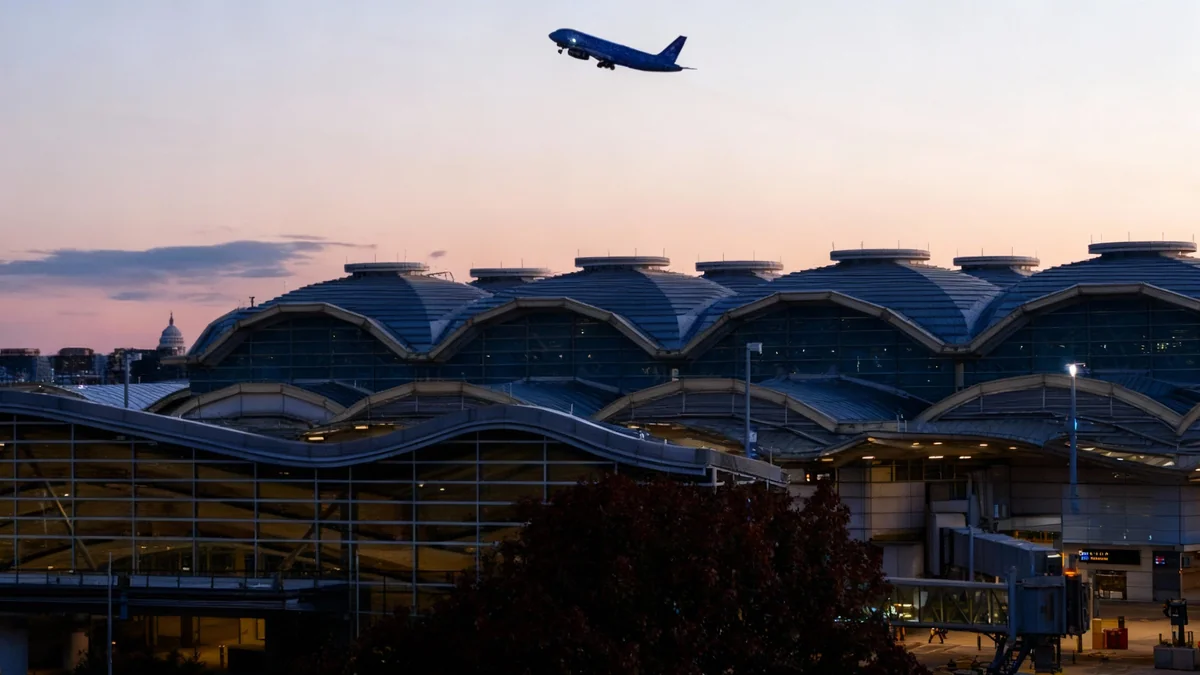A former United Airlines flight attendant has filed a class-action lawsuit against the carrier. The lawsuit alleges that United Airlines does not pay cabin crew for significant time spent on the ground, including boarding, deplaning, and essential safety checks. This legal action highlights a long-standing issue in the airline industry regarding compensation for flight attendants' non-flying duties.
Key Takeaways
- Former United flight attendant Ava Lawrey is suing the airline for alleged unpaid work.
- The lawsuit claims United does not pay for ground time, including boarding and deplaning.
- This practice may violate New Jersey wage and hour laws.
- Other airlines like American and Delta have started paying for boarding time.
- United's flight attendant union recently rejected a contract offer that included boarding pay.
Lawsuit Challenges Airline Wage Practices
Ava Lawrey worked as a flight attendant for United Airlines from July 2023 to July 2025. She filed her lawsuit in a New Jersey district court. Lawrey claims the airline's payment structure forces flight attendants to work without compensation for many hours. The legal challenge seeks to recover millions of dollars in alleged unpaid wages and overtime for affected crew members.
According to the lawsuit, United Airlines only pays flight attendants for the time an aircraft is in the air. This 'flight pay' typically begins when the plane pushes back from the gate and ends when the aircraft door opens at its destination. This traditional model means significant portions of a flight attendant's workday go unpaid.
Uncompensated Ground Duties
Fact: Unpaid Hours
Ava Lawrey claims she would often work 72 hours over six days but only be paid for 48 hours due to multiple short flights and uncompensated ground time.
Lawrey's lawsuit details several activities for which flight attendants are required to be present and working but receive no pay. These include:
- Arriving at the airport one hour before a flight, which is a mandatory requirement.
- Completing pre-flight paperwork and ensuring all safety equipment is in working order.
- Assisting passengers during boarding, which involves customer service and managing cabin logistics.
- Helping passengers deplane and navigating immigration and customs processes.
She also noted that she often waited for hours between flights while in uniform and on duty, without receiving any pay. This waiting time is common for flight attendants, especially those working shorter routes.
Industry Trends and Contract Negotiations
The issue of uncompensated ground time is a key point in ongoing labor discussions across the airline industry. Several major U.S. carriers have already started offering some form of boarding pay. These include American Airlines, Alaska Airlines, Delta Air Lines, and SkyWest.
This boarding pay is typically offered at a reduced rate, often half the standard flying pay. However, it usually does not cover other ground duties or waiting periods between flights. The move by other airlines suggests a growing recognition of the need to compensate flight attendants for this previously unpaid work.
Context: Union Negotiations
United Airlines has been in contract negotiations with its flight attendant union. The airline offered to include boarding pay in a tentative agreement. However, flight attendants rejected this deal in July, despite promises of a 26.9% average wage increase.
Reasons for Contract Rejection
The rejection of United's tentative contract offer was a significant event. While the exact reasons for its unpopularity are still being analyzed by the union, there are suspicions that crew members were dissatisfied with the lack of 'ground duty pay.' Ground duty pay would compensate flight attendants for all time spent at work, regardless of whether the aircraft is flying.
"United’s illegal and improper wage practices have deprived Flight Attendants of millions of dollars in wages and overtime compensation," the lawsuit alleges.
Boarding is often considered one of the most demanding periods of a flight attendant's workday. Despite this, United does not currently compensate crew members for this time. For newer flight attendants, who often work more short flights, the impact of only being paid for flight time is particularly significant.
The Debate Over Ground Duty Pay
The concept of 'ground duty pay' presents both advantages and disadvantages for flight attendants. For new hires, who frequently work multiple short flights, ground duty pay would offer better compensation. These crew members spend more time on the ground, handling boarding, deplaning, and administrative tasks between flights.
However, the current system inflates flying pay rates to account for the lack of ground compensation. Veteran flight attendants, who often work longer, fewer flights, might see their flying pay reduced if ground duty pay is introduced. This could create a divide within the flight attendant community, as different pay models would benefit different groups.
Similar Legal Challenges
Lawrey's lawsuit is not an isolated incident. A similar legal challenge has been filed against Southwest Airlines by Matthew Lanclos, a veteran flight attendant based in Colorado. Lanclos's lawsuit, filed in February, also seeks compensation for unpaid boarding time. This case is ongoing.
The Lanclos lawsuit is notable because it challenges a labor agreement that was voted on by Southwest flight attendants. This agreement maintained the existing practice of only paying for flight time. Airlines like United and Southwest are expected to argue that collective bargaining agreements, the Railway Labor Act, and federal aviation regulations should take precedence over state wage and hour laws.
The outcome of these lawsuits could significantly impact how flight attendants are compensated across the U.S. airline industry, potentially leading to widespread changes in pay structures and working conditions.
The case number for Ava Lawrey's lawsuit in the New Jersey district court is 2:25-cv-15624.





